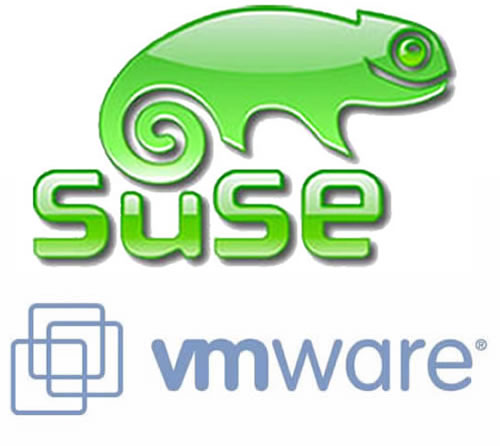If the rumors are correct, Novell will soon be sold off in two parts. The alleged buyers are VMware and Attachmate, which has private equity backing. The big question: Does VMware really intend to acquire Novell's SUSE Linux business? The VAR Guy doubted it a few months ago. But now, The VAR Guy has come around to the idea, assuming pricing and terms can be worked out.
September 16, 2010


VMware Novell SUSE Linux
If the rumors are correct, Novell will soon be sold off in two parts. The alleged buyers are VMware and Attachmate, which has private equity backing. The big question: Does VMware really intend to acquire Novell’s SUSE Linux business? The VAR Guy doubted it a few months ago. But now, The VAR Guy has come around to the idea, assuming pricing and terms can be worked out. Here are five reasons VMware would pursue such a deal.First, a note of caution: The VAR Guy has not confirmed Novell‘s alleged breakup and sale to VMware and Attachmate. The Wall Street Journal reported the speculation earlier this evening, and Novell essentially has been in play ever since the company declined an unsolicited takeover bid from Elliott Associates in March 2010.
Five Reasons VMware May Buy SUSE Linux
But let’s assume VMware is seriously interested in SUSE Linux. What’s the potential upside for all parties involved? Here are some educated guesses from The VAR Guy:
1. Fending off Red Hat: No doubt, Red Hat CEO Jim Whitehurst plans to attack VMware. The strategy involves Red Hat Enterprise Linux (RHEL) and Red Hat Enterprise Virtualization (RHEV). Within the halls of VMware, there is some concern about RHEV, which is based on the open source Kernel-based Virtual Machine (KVM). Whitehurst believes RHEL and RHEV can eventually topple VMware the way Linux toppled the traditional Unix market. But it’s going to take time for Red Hat to strengthen RHEV with management tools that match VMware.
Instead of allowing RHEV to gain some momentum, VMware could use SUSE Linux to launch a preemptive strike and attack Red Hat’s core Linux business.
2. Ganging Up Against Microsoft: On the one hand, Microsoft’s Hyper-V is attacking VMware’s core virtualization business. But VMware is returning the favor by positioning Zimbra — an open source email system — against Microsoft Exchange. Longer term, a SUSE Linux-Zimbra combo could become a compelling alternative to Windows Server running Exchange.
VMware acquired Zimbra from Yahoo earlier this year. And starting in August 2010, VMware started pumping Zimbra through the VMware channel. If VMware acquires SUSE Linux, it’s safe to expect VMware to train its resellers on the Linux distribution.
3. Gaining More ISVs: After a slow start, Novell gained considerable ISV momentum with SUSE Linux in the past 18 months or so. True believers include EnterpriseDB and GroundWork Open Source. With some aggressive management, VMware could rally those upstart open source companies against entrenched closed-source application providers like Oracle and Microsoft.
4. Gaining Application Development Tools: Have you heard of Novell SUSE Studio? If not, take a look. The tool is a hit with developers that want to write application appliances. And you can bet VMware would like to inject some virtualization into all those software appliances.
5. Gaining the Upper Hand in the Data Center: Microsoft and Novell have spent recent years integrating Windows Server and Novell SUSE Linux for the data center. Lots of CIOs have embraced the joint Microsoft-Novell pitch. Now, imagine VMware gaining a hold of that joint customer list and virtualizing all of those Windows-SUSE Linux deployments on top of VMware.
Simply put, Novell’s Intelligent Workload Management (IWM) strategy and WorkloadIQ align well with VMware.
Starting to get the picture?
Assuming the price is right, The VAR Guy understands why VMware allegedly is at the negotiating table with Novell. The VAR Guy will continue to track this story closely.
Plus, The VAR Guy will be back soon with Five Reasons Why Attachmate May Buy Novell’s management business.
Sign up for The VAR Guy’s Weekly Newsletter; Webcasts and Resource Center; and via RSS; Facebook; Identi.ca; Twitter and VARtweet.
About the Author(s)
You May Also Like


